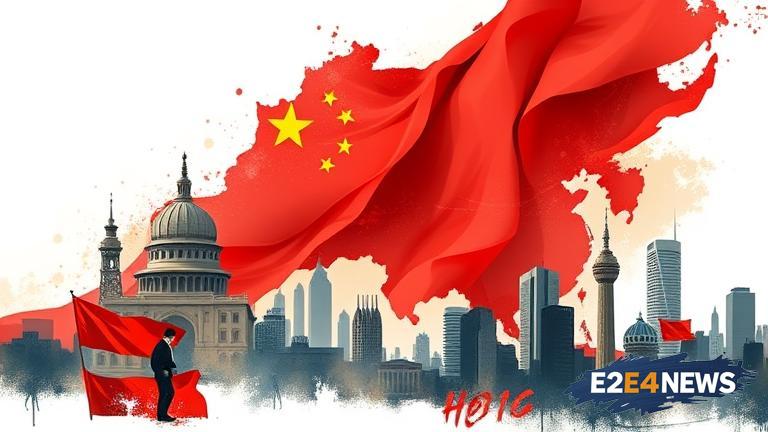China’s economic rise has been a defining feature of the 21st century, with the country experiencing unprecedented growth and transformation over the past few decades. This growth has been driven by a combination of factors, including large-scale investments in infrastructure, a highly skilled and educated workforce, and a favorable business environment. As a result, China has become the world’s second-largest economy, with a nominal GDP of over $14 trillion. The country’s economic influence extends far beyond its borders, with Chinese companies and investors playing a major role in global trade and investment. China’s Belt and Road Initiative, a massive infrastructure development project, aims to connect the country with other parts of Asia, Europe, and Africa, further solidifying its position as a global economic powerhouse. The initiative has already led to significant investments in countries such as Pakistan, Kazakhstan, and Indonesia, and is expected to have a major impact on global trade patterns. China’s economic rise has also been accompanied by a significant increase in innovation and technological advancements, with the country becoming a leader in fields such as artificial intelligence, renewable energy, and biotechnology. The government has implemented a range of policies and initiatives to support the development of these industries, including investments in research and development, tax incentives, and funding for start-ups. As a result, China is now home to some of the world’s most innovative and successful companies, including tech giants such as Alibaba and Tencent. The country’s economic growth has also led to a significant increase in living standards, with hundreds of millions of people lifted out of poverty over the past few decades. However, China’s economic rise has also been accompanied by a range of challenges, including environmental degradation, income inequality, and concerns over intellectual property protection. The government has implemented a range of policies to address these challenges, including investments in renewable energy, social welfare programs, and stricter regulations on intellectual property. Despite these challenges, China’s economic influence is expected to continue to grow in the coming years, with the country playing an increasingly important role in global trade and investment. The implications of China’s economic rise are far-reaching, with the potential to reshape the global economy and create new opportunities for trade and investment. As the country continues to grow and develop, it is likely to have a major impact on the global economy, with significant implications for businesses, investors, and policymakers around the world. China’s economic rise has also led to a significant increase in diplomatic and strategic influence, with the country playing a major role in global affairs. The government has implemented a range of initiatives to promote Chinese culture and values, including the establishment of Confucius Institutes around the world. China’s economic rise has also been accompanied by a significant increase in military spending, with the country becoming a major military power. The implications of China’s economic rise are complex and multifaceted, and will require careful consideration and analysis from policymakers and business leaders around the world. As the country continues to grow and develop, it is likely to play an increasingly important role in shaping the global economy and international relations. China’s economic rise is a testament to the country’s ingenuity, hard work, and determination, and has the potential to create new opportunities for trade, investment, and cooperation. However, it also poses significant challenges and risks, and will require careful management and diplomacy to ensure that its benefits are shared by all. The Chinese government has implemented a range of policies to promote sustainable and inclusive growth, including investments in education, healthcare, and social welfare. The country’s economic rise has also led to a significant increase in cultural and artistic expression, with Chinese artists, writers, and musicians gaining international recognition. China’s economic rise is a major story of the 21st century, with far-reaching implications for the world economy and international relations. As the country continues to grow and develop, it is likely to play an increasingly important role in shaping the global economy and creating new opportunities for trade, investment, and cooperation.
